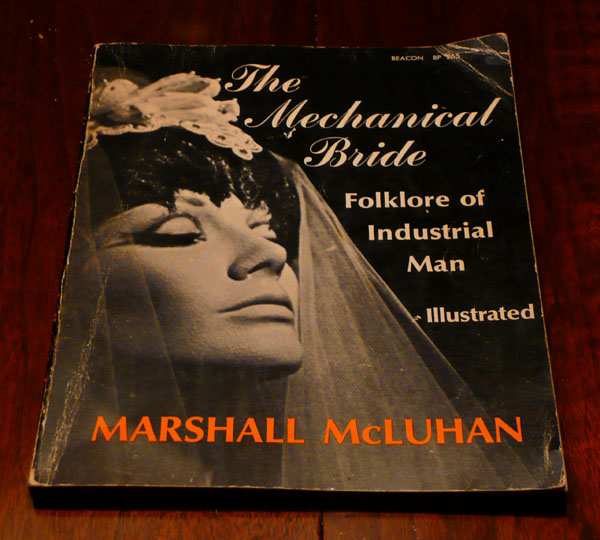Stop Reading This Blog

The scoldiest urban scold that ever scolded, Lewis Mumford, had a bone to pick with Marshall “the medium is the message” McLuhan back in 1970:
But it remained for McLuhan to picture as technology’s ultimate gift a more absolute mode of control: one that will achieve total illiteracy, with no permanent record except that officially committed to the computer, and open only to those permitted access to this facility. This repudiation of an independent written and printed record means nothing less than the erasure of man’s diffused, multi-brained collective memory: it reduces all human experience into that of the present generation and the passing moment. The instant record is self-effacing. In effect, if not in intention, this would carry mankind back to a far more primitive state than a tribal one: for pre-literate peoples conserved a large part of their past by cultivating extraordinary memories, and maintaining by constant repetition–even at the cost of creativity and invention–the essential links to their own past.
…
The mass media, he demonstrates, are “put out before they are thought out. In fact, their being put outside us tends to cancel the possibility of their being thought at all.” Precisely. Here McLuhan gives the whole show away. Because all the technical apparatus is an extension of man’s bodily organs, including his brain, the peripheral structure, by McLuhan’s analysis, must, by its very mass and ubiquity, replace all autonomous needs or desires: since now for us “technology is part of our bodies,” no detachment or divorce is possible. “Once we have surrendered our senses and nervous systems to the private manipulation of those who would try to benefit from taking a lease of our eyes, ears, and nerves, we don’t really have any rights [read ‘autonomy’] left.”
This latter point might well be taken as a warning to disengage ourselves, as soon as possible, from the power system so menacingly described: for McLuhan it leads, rather, to a demand for unconditional surrender. “Under technology,” he observes, “the entire business of man becomes learning and knowing.” Apart from the fact that this is a pathetically academic picture of the potentialities of man, the kind of learning and knowing that McLuhan becomes enraptured over is precisely that which can be programmed on a computer: “We are now in a position…,” he observes, “to transfer the entire show to the memory of a computer.” No better formula could be found for arresting and ultimately suppressing human development.
…
As with the transportation system, which cannot dispense with the free-moving and autonomous pedestrian without producing clotted urban congestion or equally baffling suburban dispersion, so with an efficient communications system. What is needed is a technology so varied, so many-sided, so flexible, so responsive to human need, that it can serve every valid human purpose. The only true multi-medium remains the human organism itself.
By the way, who are all you people out there? Most of us know very little about each other. Is that community? Can it make a difference?
As one commenter put it, “I am strongly of the opinion that blogs and such are great at raising issues but lousy at making progress towards workable solutions. For those of us who care about these issues on Beacon Hill, we need to be meeting face to face.”
